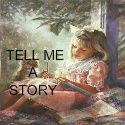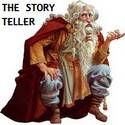 |
| The Old Parson said a Prayer as they Left Camp courtesy photobucket.com |
Morgan was awed as he saw the
wagons begin to move. They had a parson on board who prayed before the command
was given to move out. There was also a
doctor which was comforting though he was only going to Fort Boise
The train was to stay
together until where the California and Oregon trails split; then some were going to California and the others to Oregon
 |
| Image courtesy of photobucket |
It was slow moving the first
day just getting lined up took a lot of time but after that it went much
quicker.
Virgil told Morgan that they wouldn't
have to start hunting for a few days because people had the supplies that had been
bought from venders at base camp, but they would be busy in the days ahead.
The plan was that Morgan and
Virgil would leave at first light, and get quite a distance ahead of the
wagons. When they made a kill they would leave it on the trail to be picked up
by the wagons.
This left them more time for hunting. Morgan ate at the Captain's camp where his
cook fixed food for those working for the Captain. Early in the morning he
would make coffee and breakfast and some extra biscuits and fat back to take on
the trail.
Part of the duties for Virgil
was to scout ahead, and watch for any sign of Indians. He could do this because he was always hunting
up ahead anyhow.
Morgan had become acquainted
with most of the people before they set out on the trail, and had written down
how this all came about.
He called it; “TO THE GOLD
FIELDS”
"This is a story about
people, some were strong some were weak. Many were misinformed about the
journey before them. Some dangers were
exaggerated and some were worse than they had heard. None of the travelers were fully prepared for
the journey and the stress they would have to endure. Most of the wagoneers as I will call them
were emigrants who were disappointed by depression days of the 1830s, and had
heard there were better lands and a future out west.
The wagon master was named Captain John, and he insisted everyone call him that for it gave him an air of authority. In reality he wasn't ever in the army but he did some scouting for them. He had traveled over the prairie lands all the way to the coast, and knew the trails as well as the Indians. Being a good hunter he always had something to trade with the Indians. Sometimes it was furs and sometime food and trinkets.
His real security came from
his marrying one of the women of the tribe. He had many Indian wives, at least one in
every tribe from the plains out of St. Louie to the Sierra Nevada's of California
Captain John claimed to be a
Christian, and justified his many wives by saying that he was half as smart as
Solomon so he should be entitled to half as many wives as he had. Most people had a problem with his theology
but that wasn't the business at hand. He
guaranteed he could get his train across the plains safely, and by making these,
and many other promises, he had sixty wagons signed on for the trip as well as
people on horseback and walking.
The only requirement for
those without a wagon was they had to have someone with a wagon to haul their
necessary goods they would need.
After a month of preparation
they were ready to leave. Captain John
had hired three scouts to go along. They
were men he knew and could trust, and had hunted with him prior to this trip.
There was one who was capable of leading those who wanted to split off in Idaho and continue on to Oregon
Captain John had collected a
great deal of money from the wagoneers and he used a lot it to outfit another
wagon with trading goods for he knew Indians who would trade for goods were
less likely to attack them. The word would spread ahead, and each evening there
were a few Indians who came with dried fish, furs and sometime fresh meat to
trade. Progress was slow for each day
the animals had to have time to graze in the evening because they couldn't haul
enough animal feed for the entire six months."
Morgan had gleaned this
information from the wagon people and felt it would be good to have it written
down.
To be Continued.











No comments:
Post a Comment
If you are having trouble making a comment - select anonymous but please add your first name to the comment.